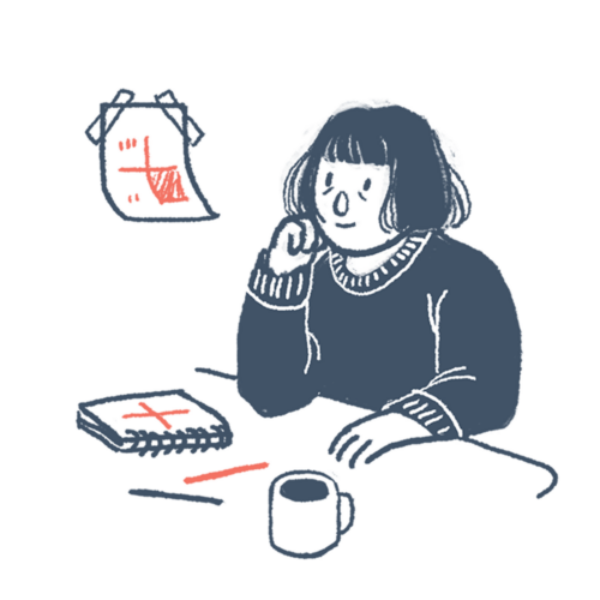For living, in climate crisis
by Madeleine Jubilee Saito / Artist-In-Residence 2022
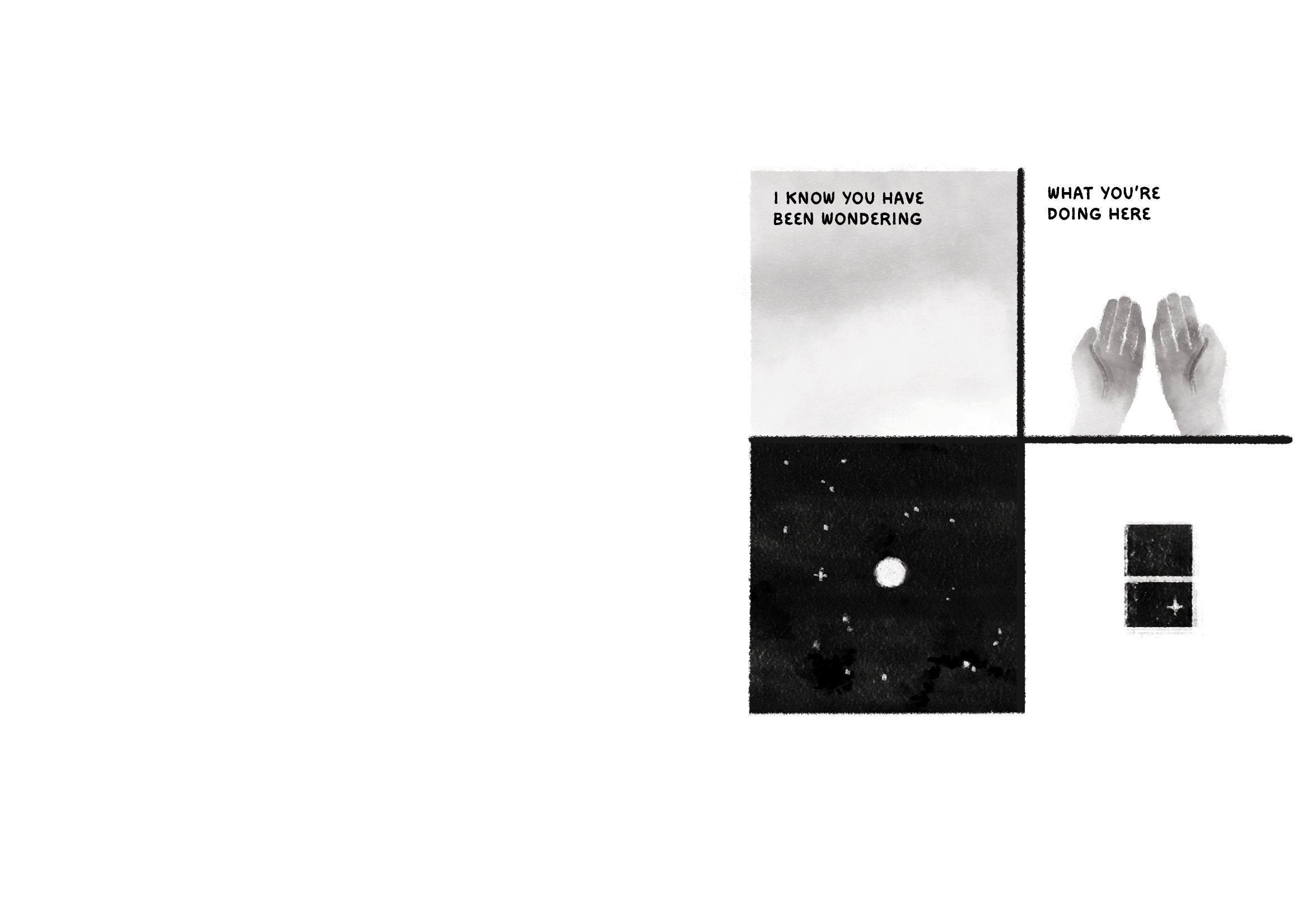
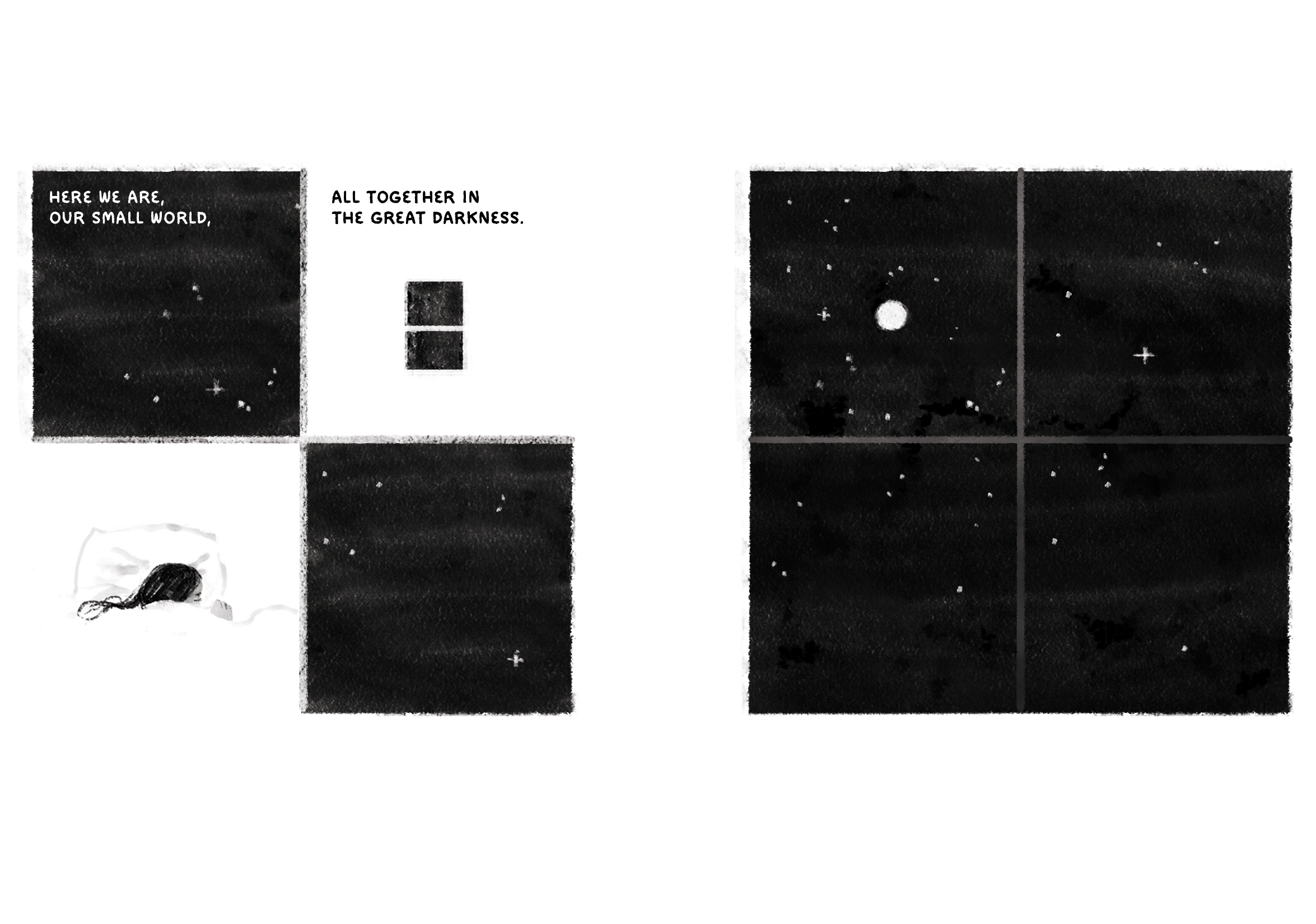
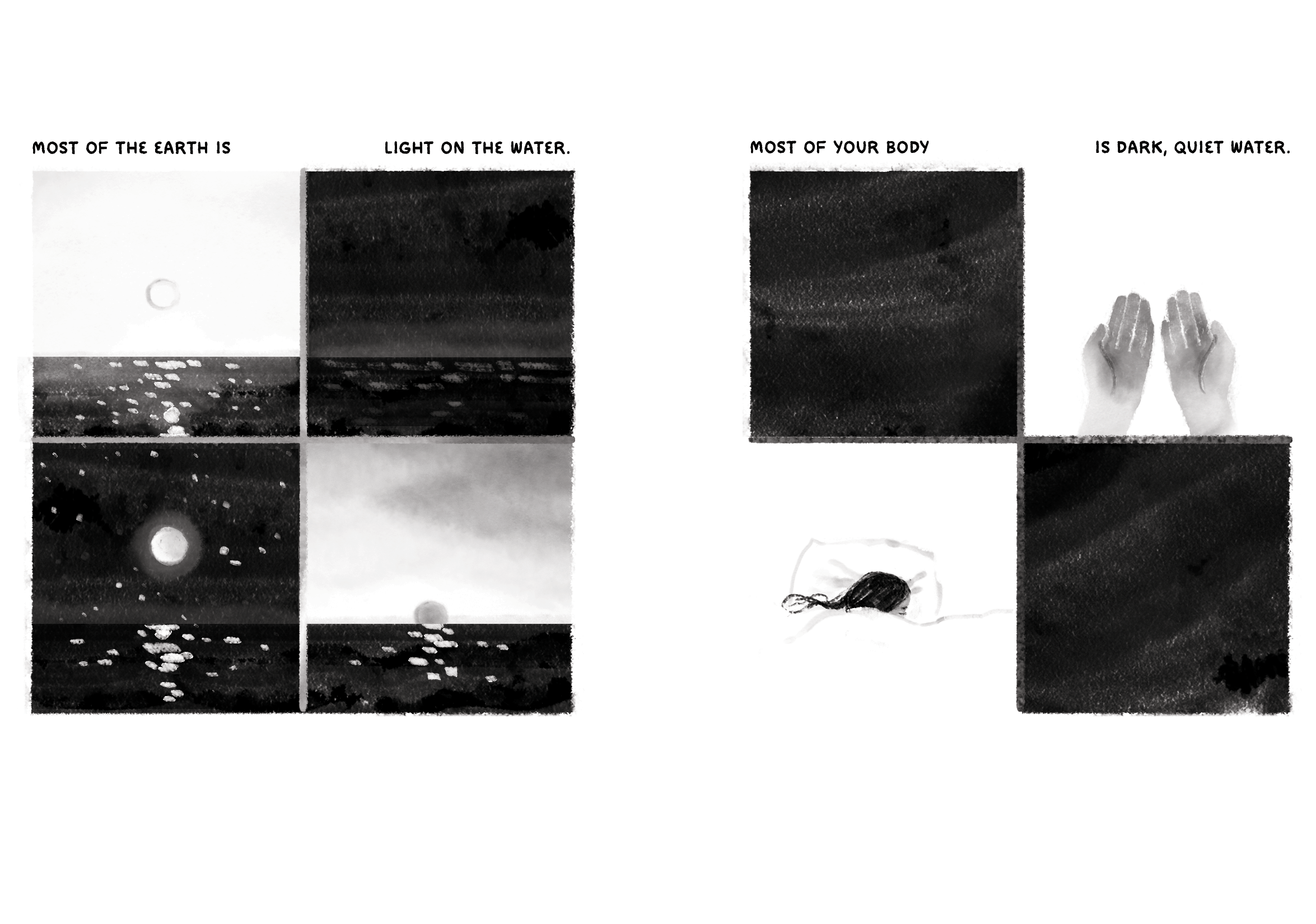
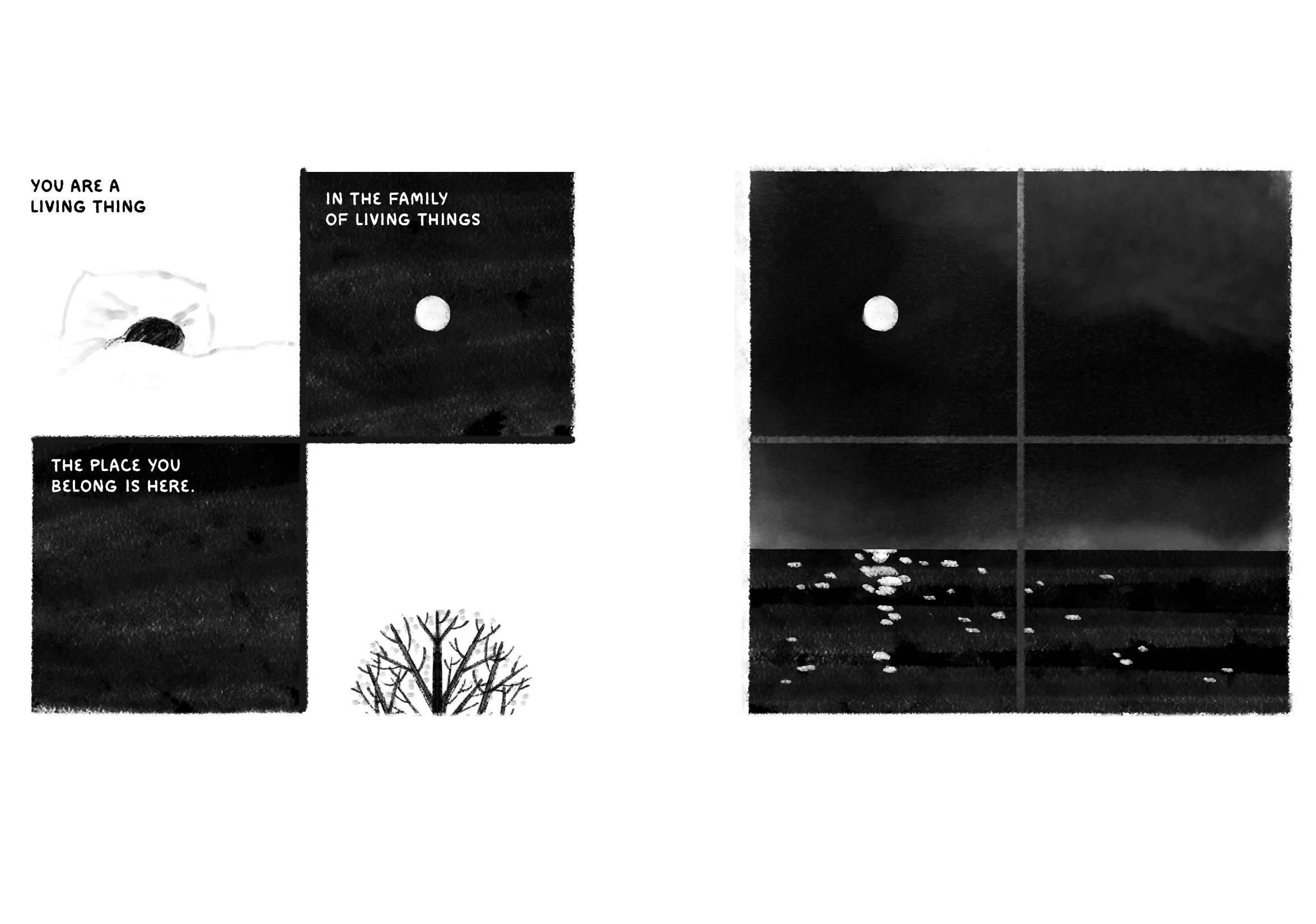
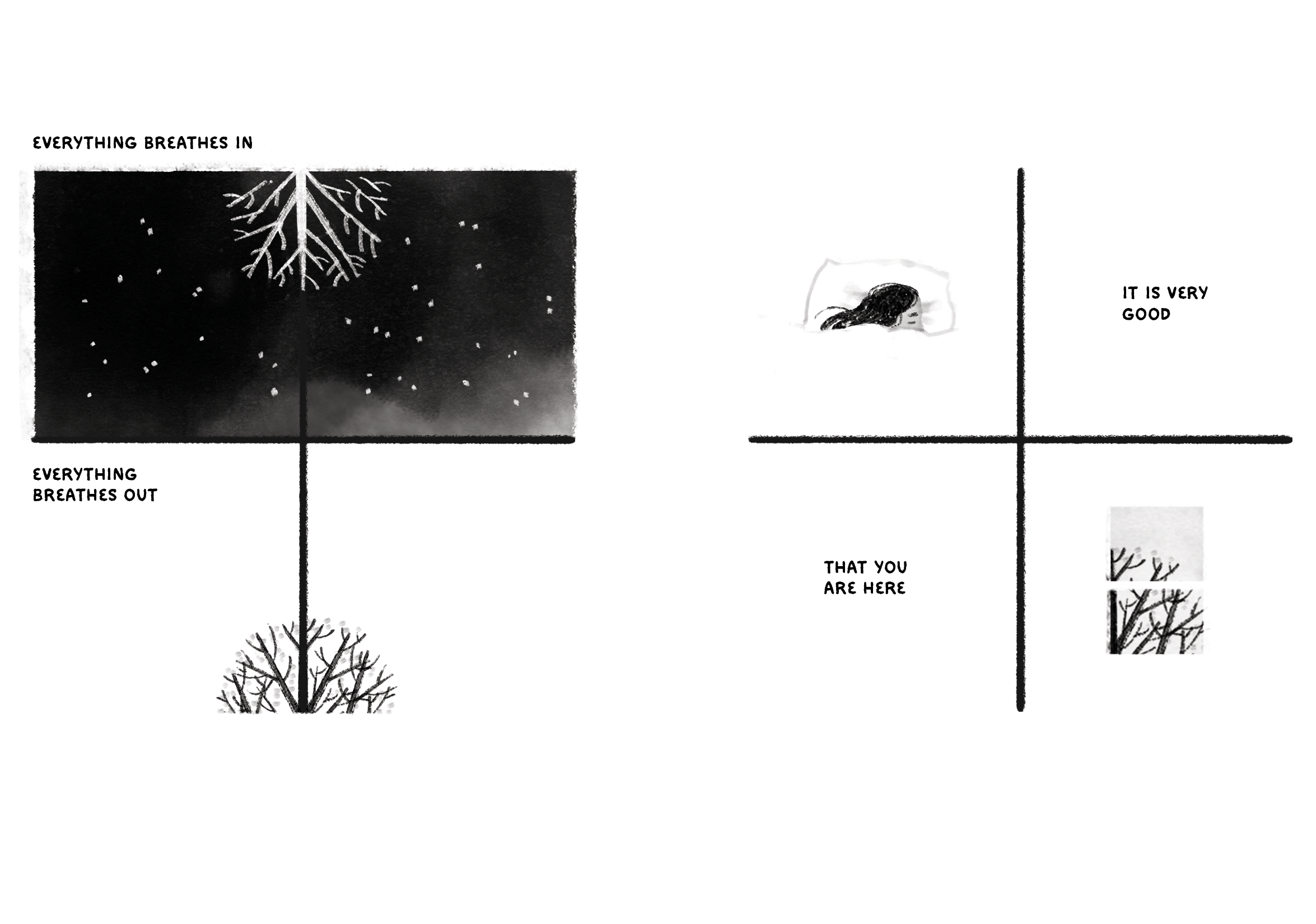
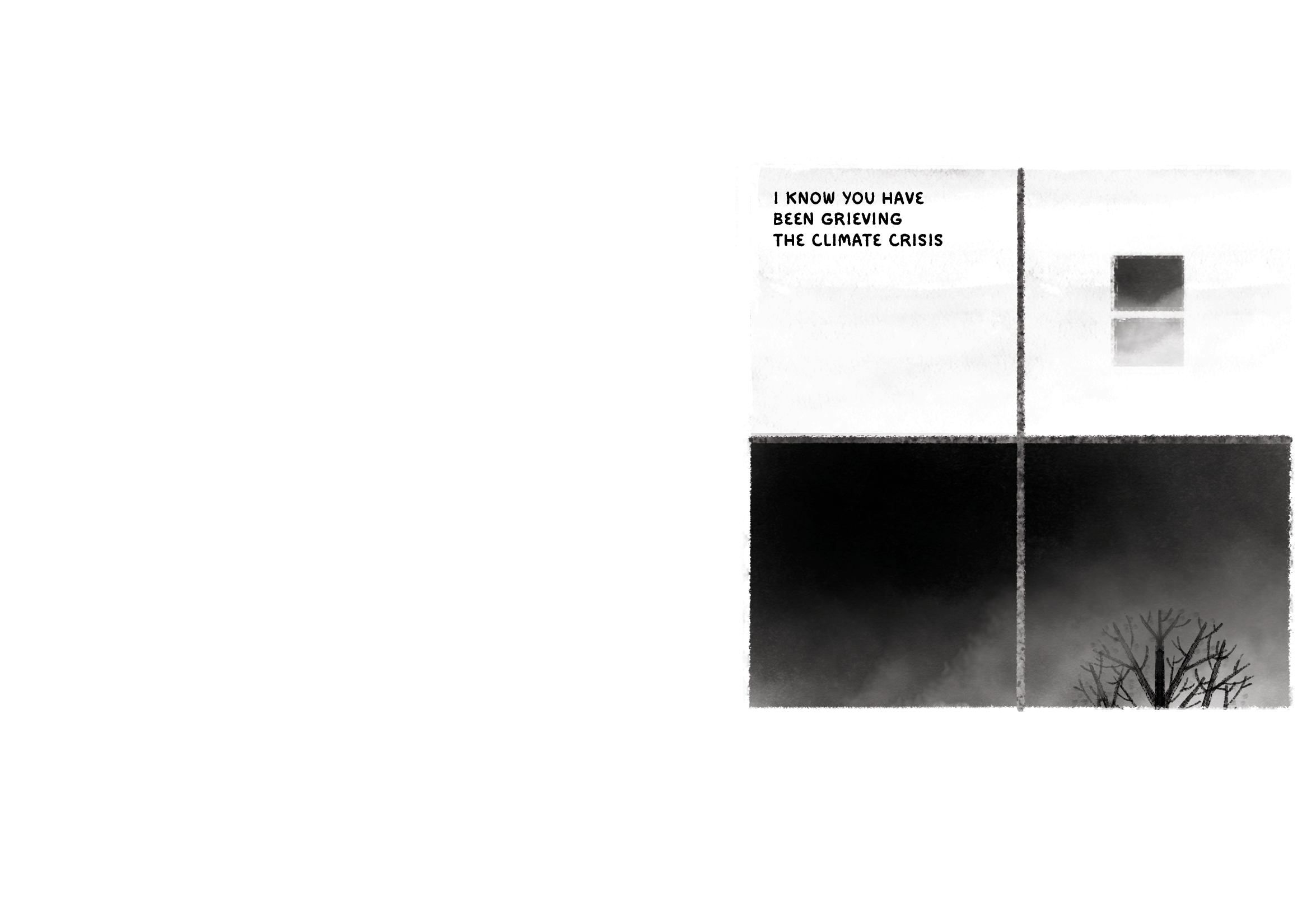
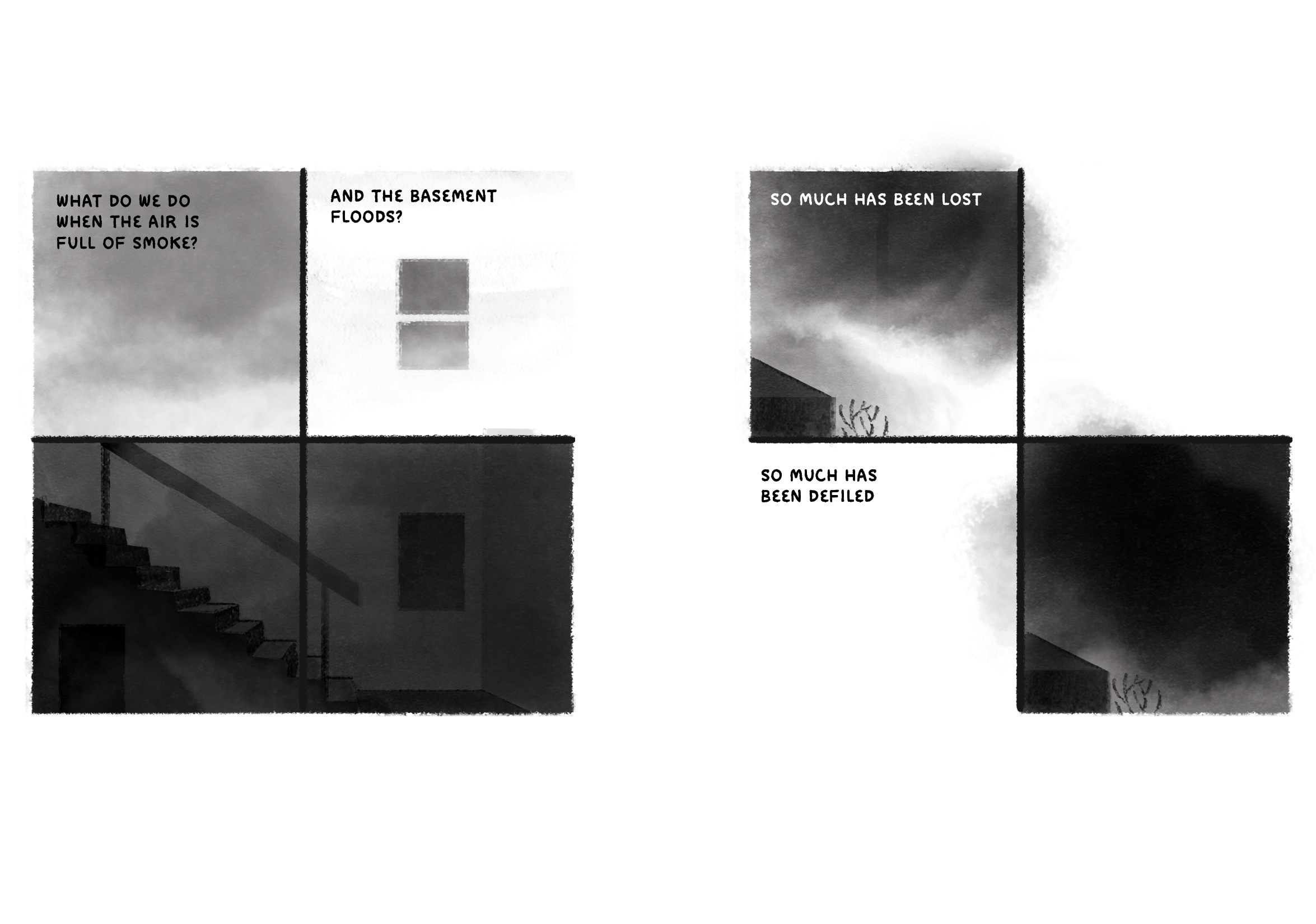
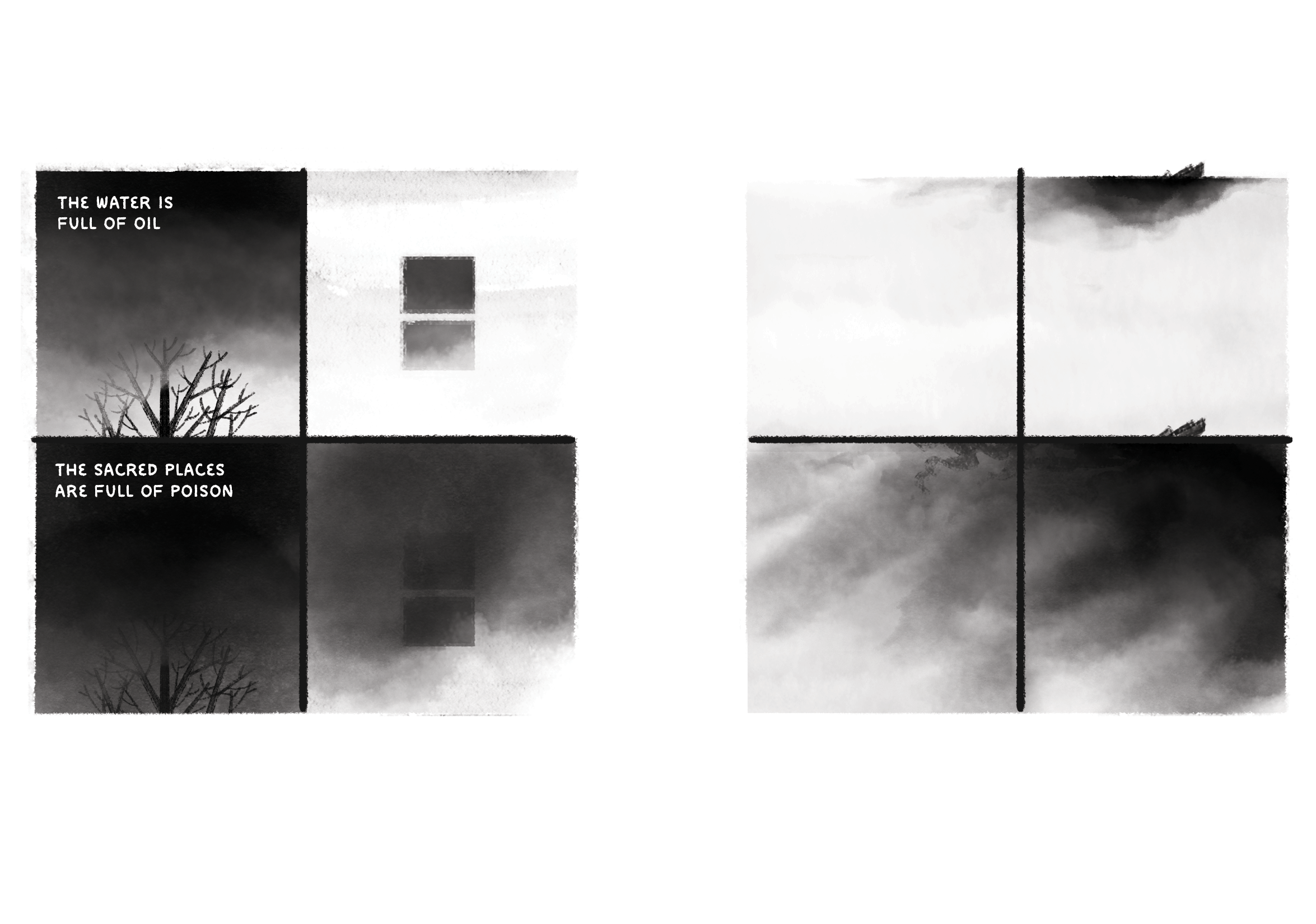
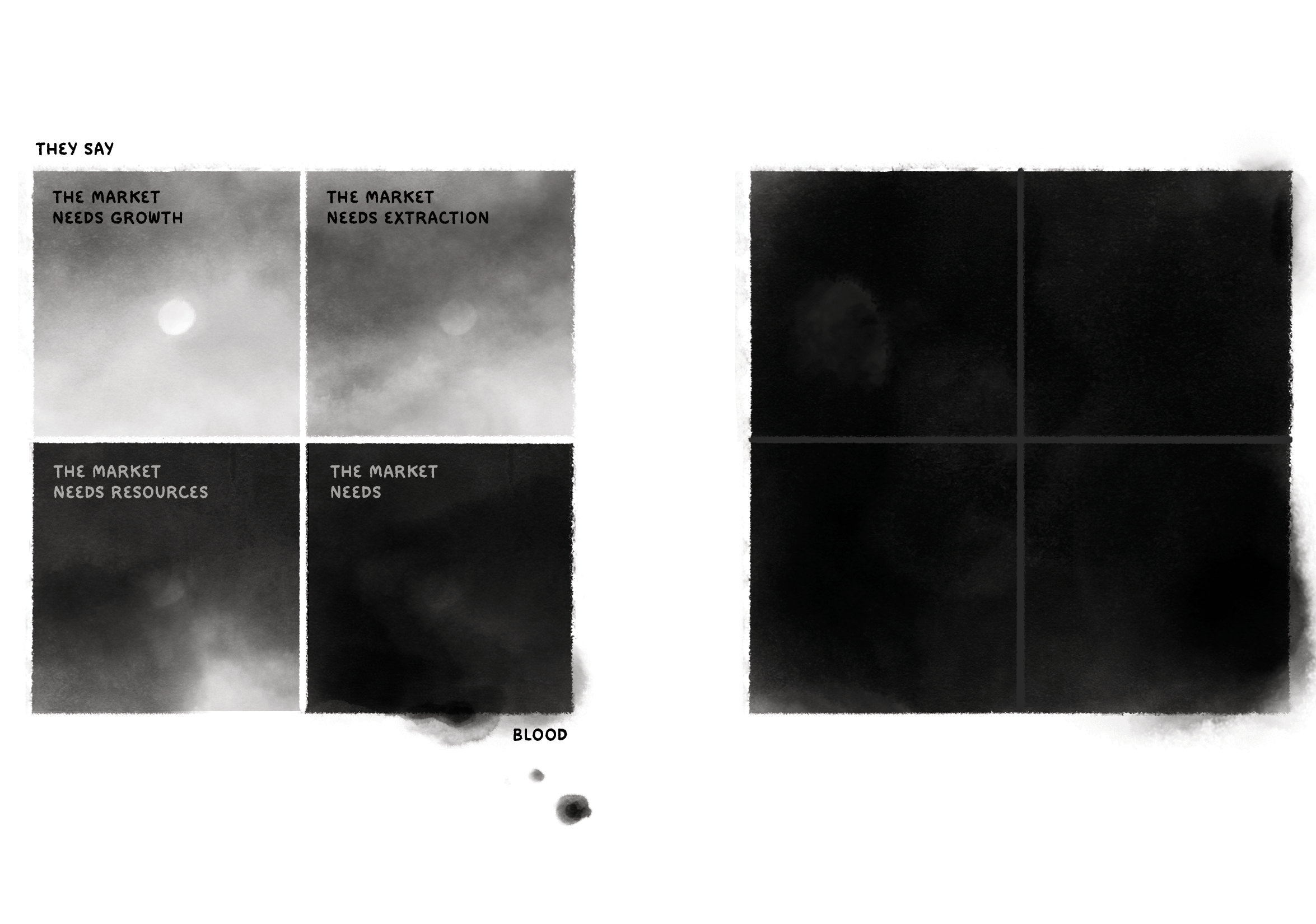
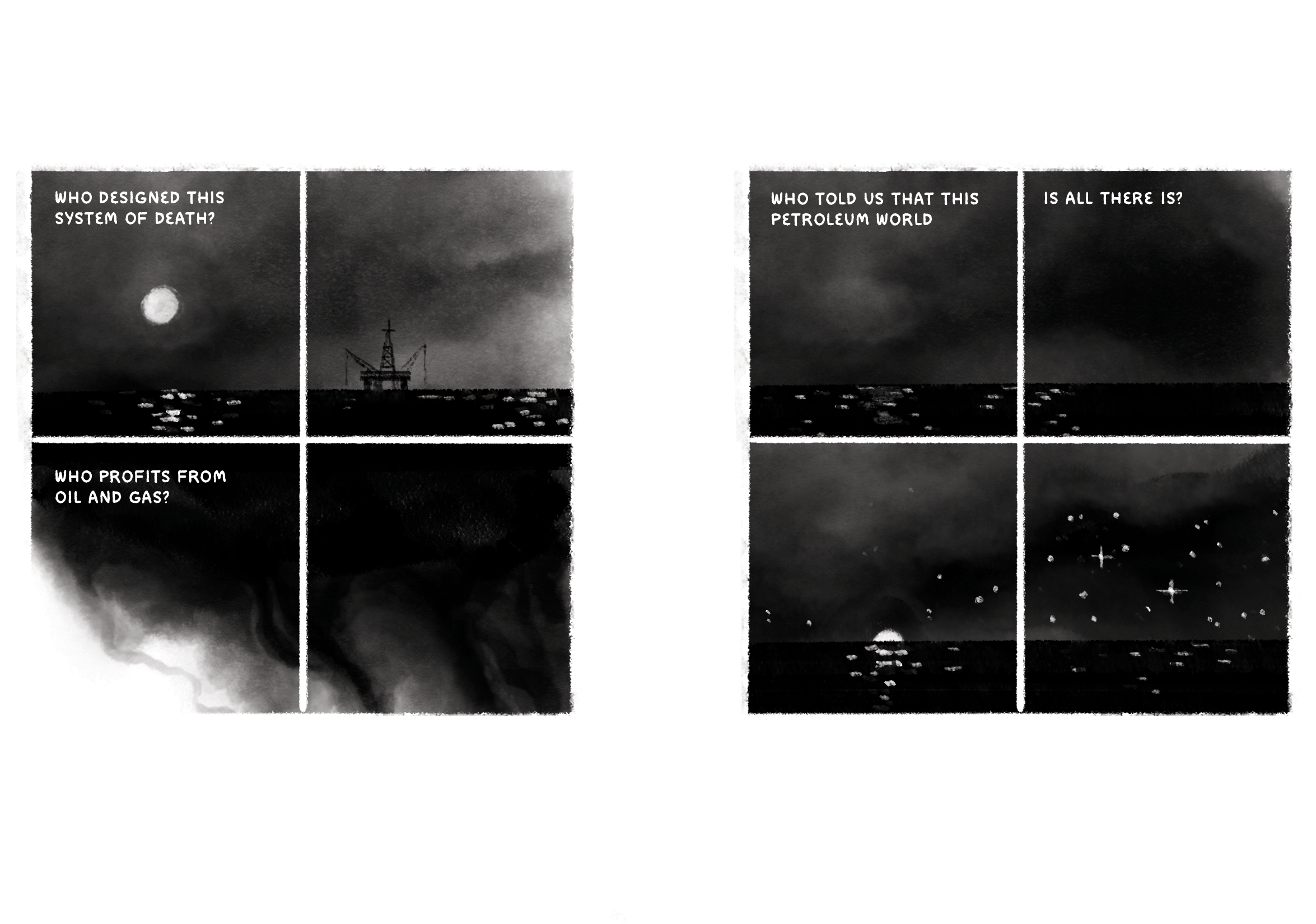
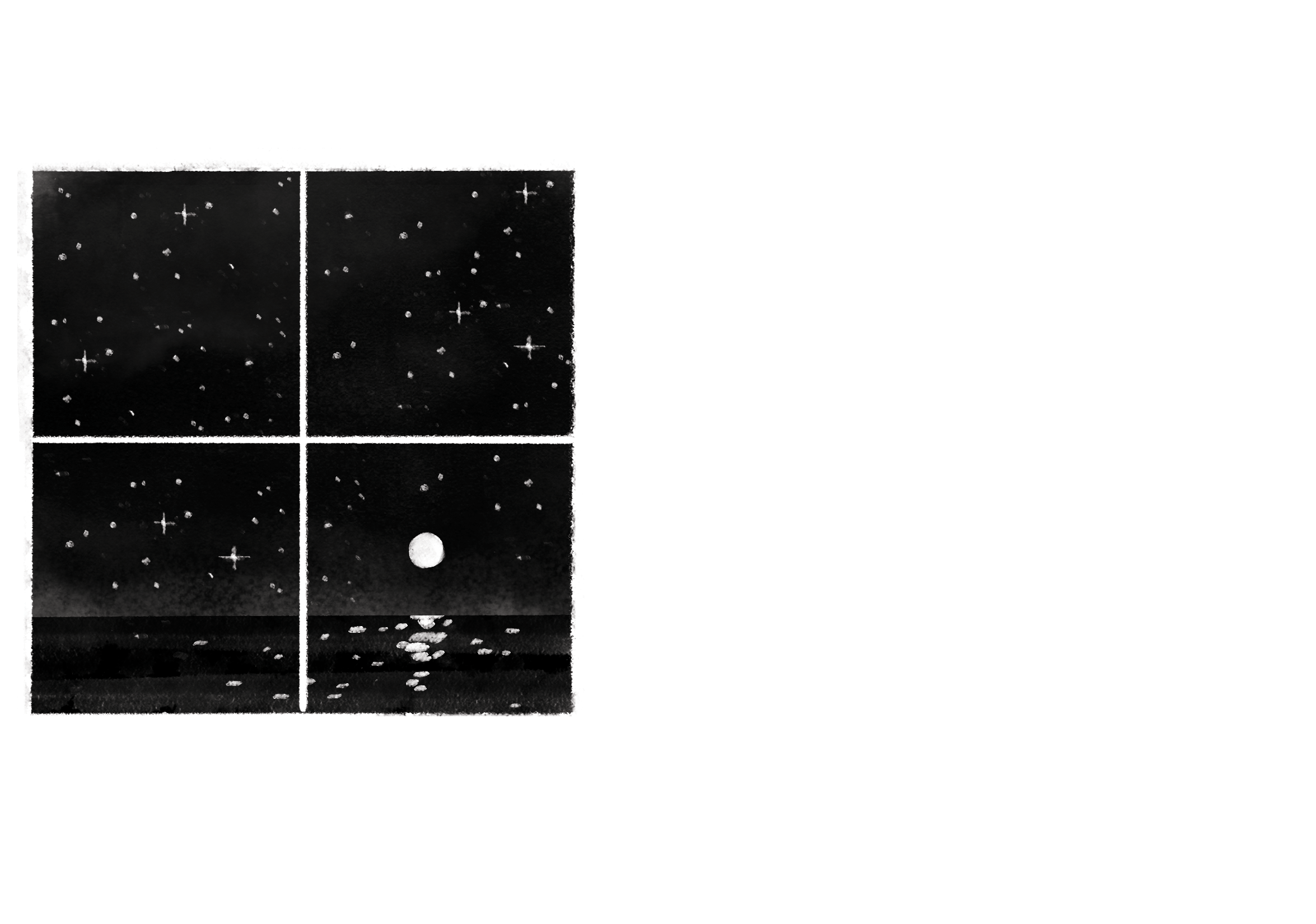
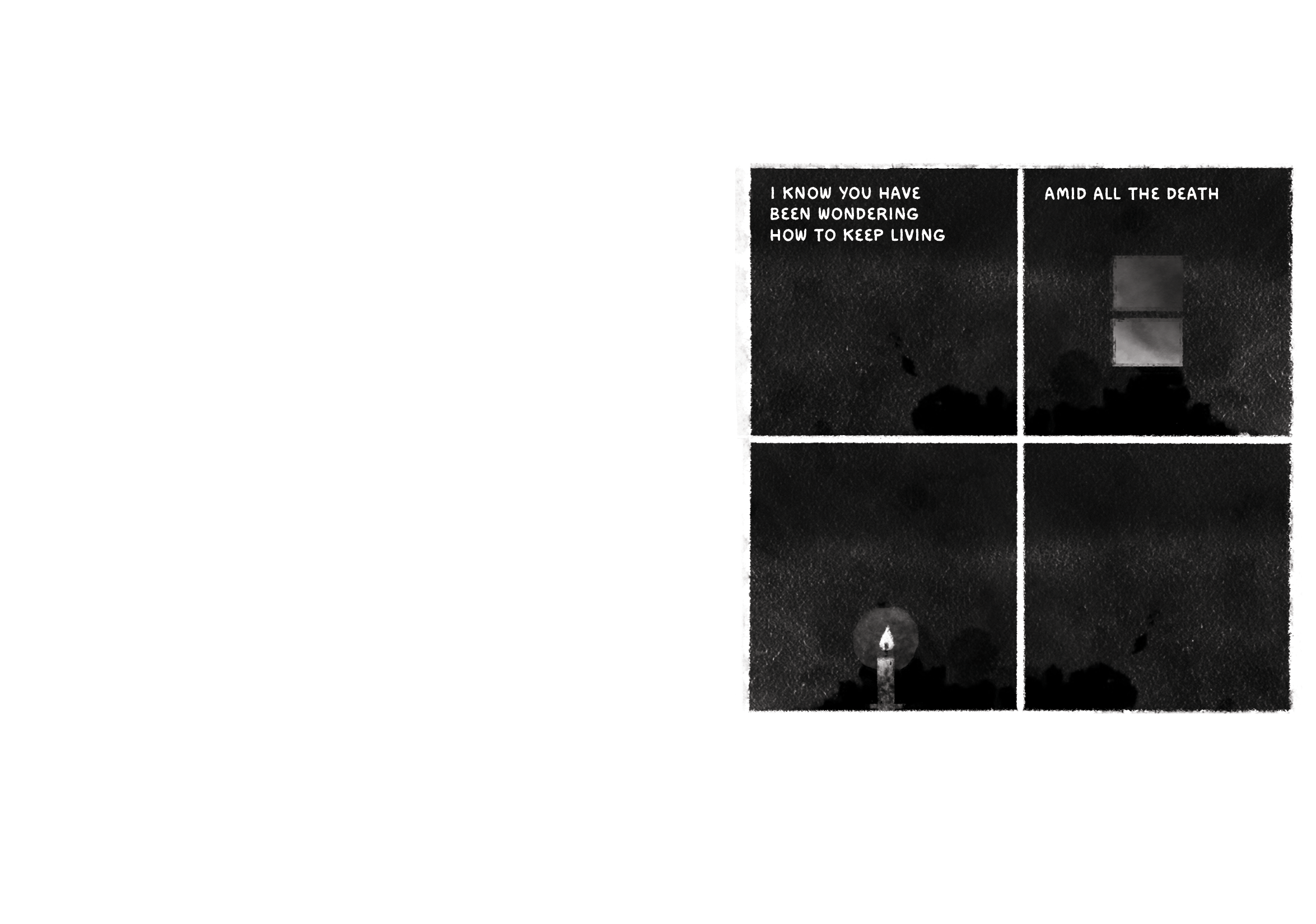
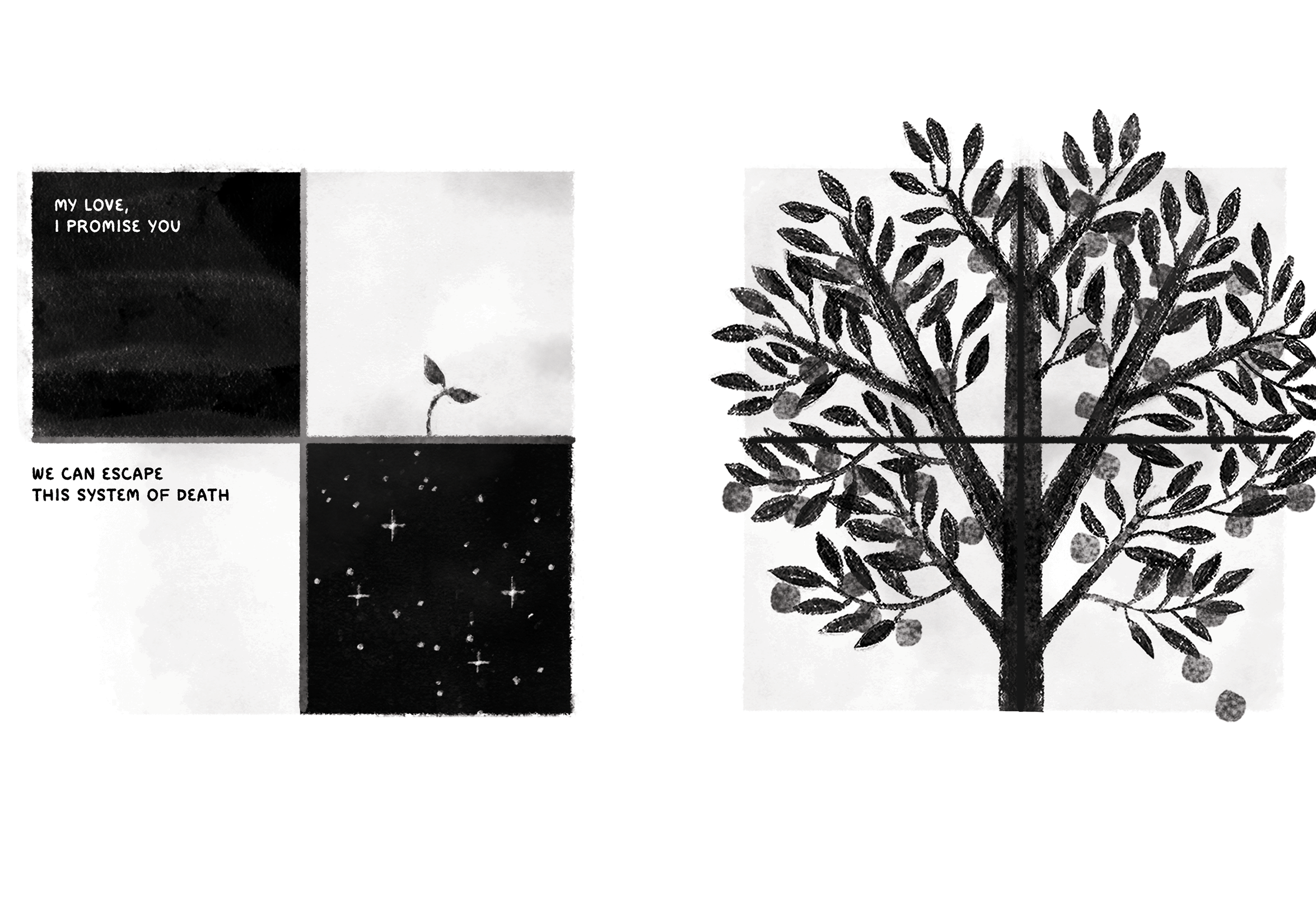
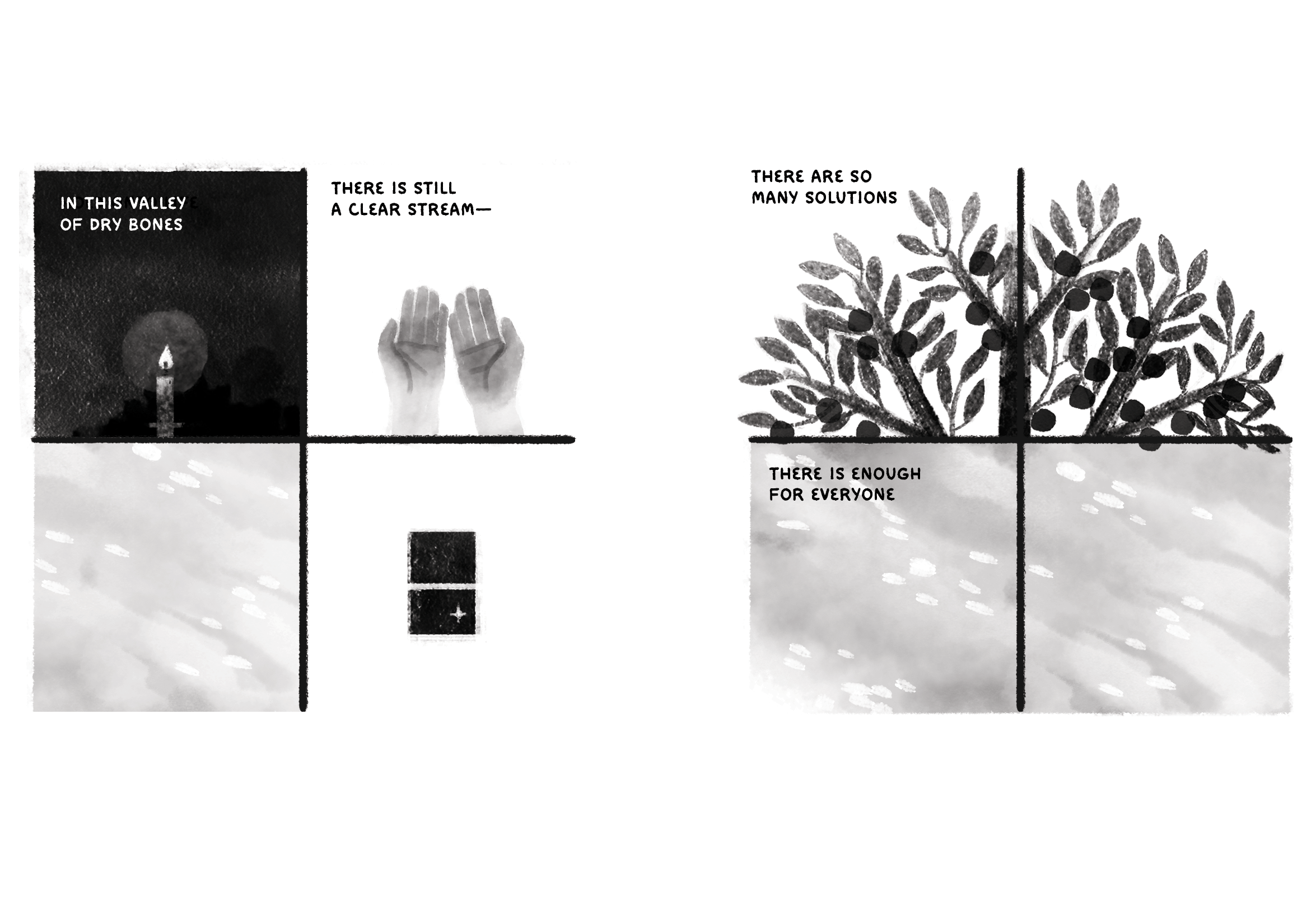
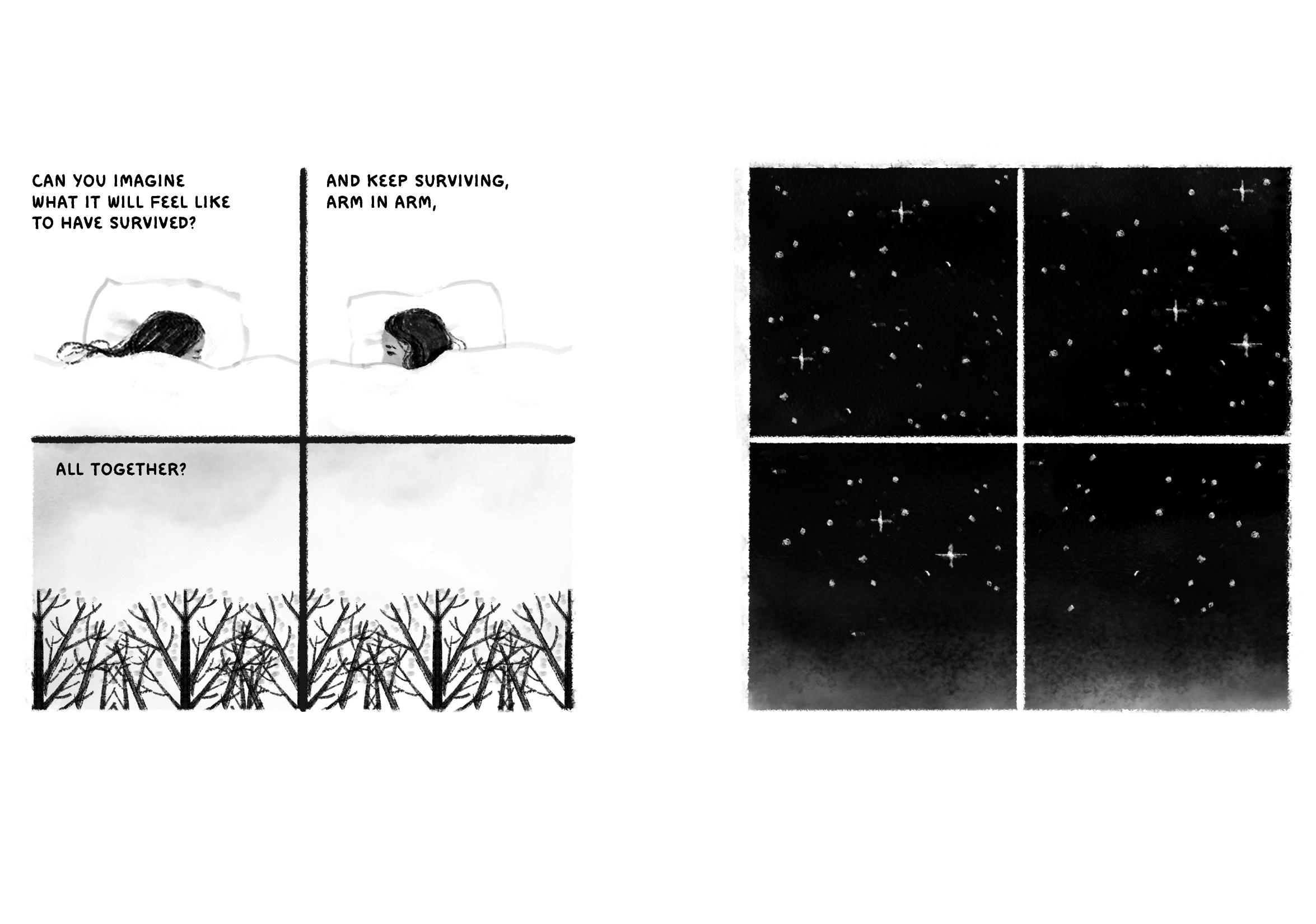
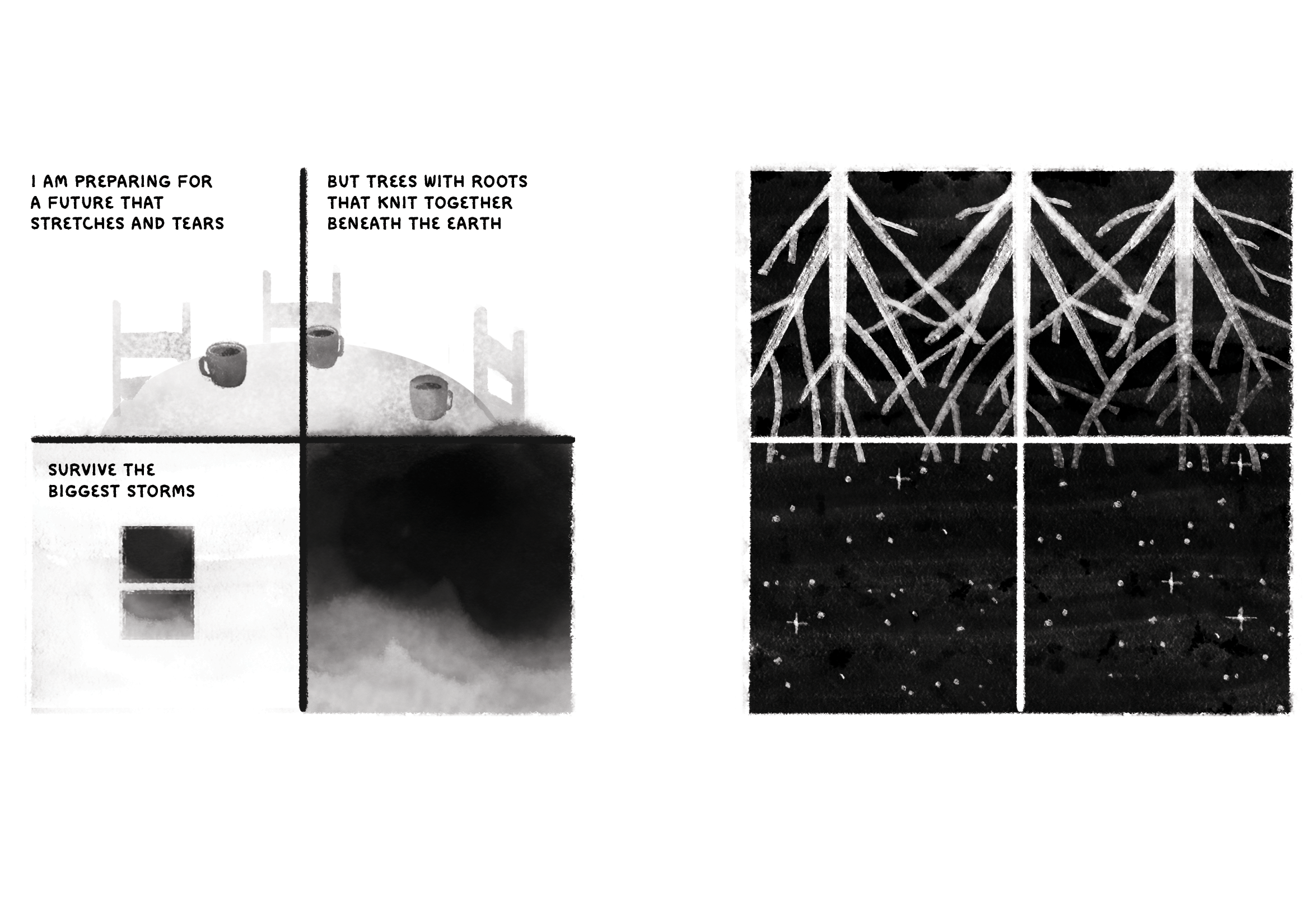
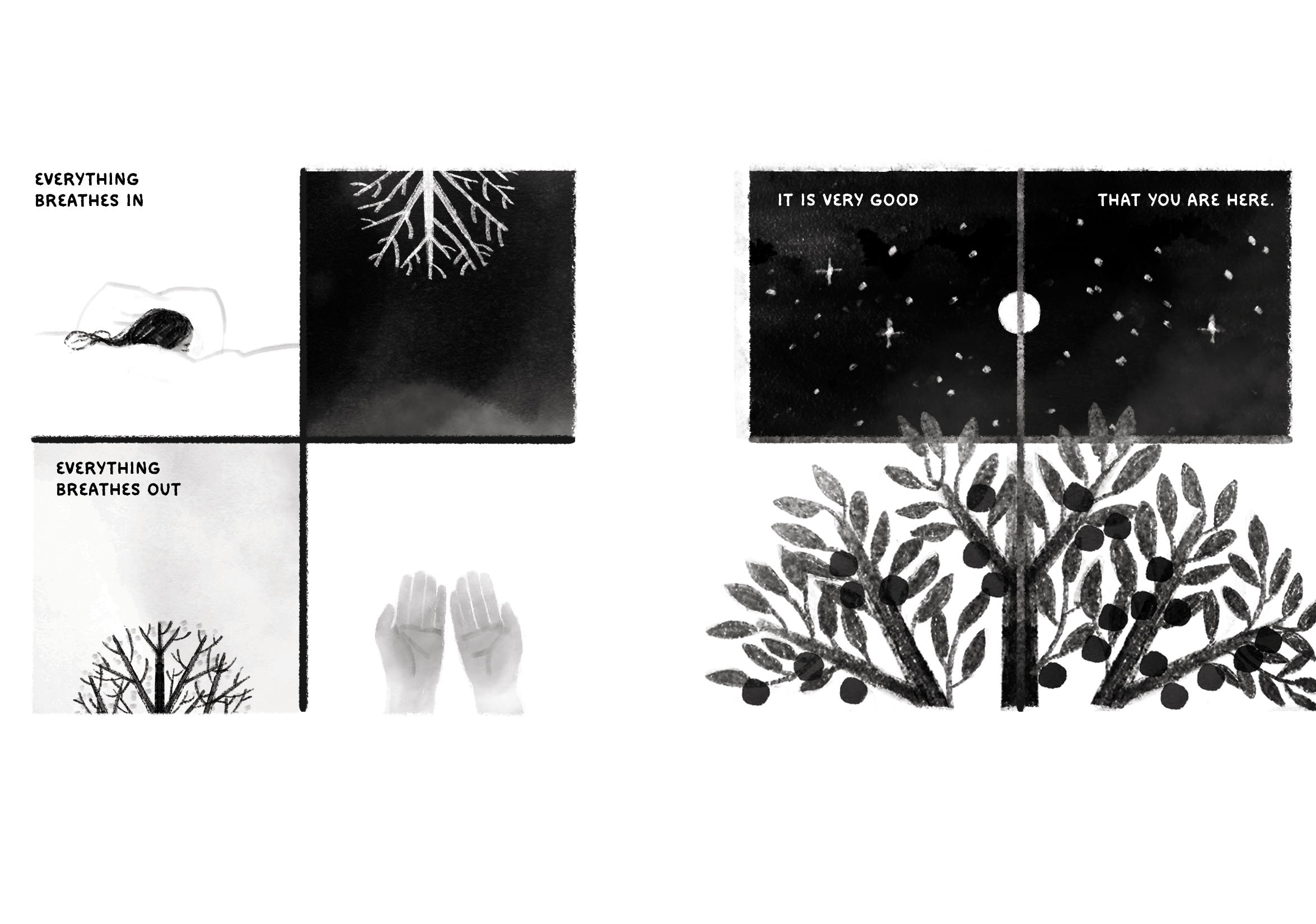 Artist Reflection
Artist Reflection
The background of this piece
Healing the climate crisis, and learning to be resilient in its impacts, is the work of our lifetimes.
My proposal for this residency was to create a meditative poem-comic designed for people who are just waking to the reality of the climate crisis: to hold space for mourning and rage, to ground in our humanity, and to help us imagine ourselves as future survivors — not disposable or doomed, but beloved and integral parts of the great work of healing the world and reimagining our systems.
I was incredibly grateful for the container of time this residency provided. Like many artists I know, I’ve always divided my time between full-time work and art on-the-side. It was an incredible gift to have the sustained time, accountability, and community to create this piece.
How the piece grew & changed
This piece was informed by a series of conversations with a loved one who is disabled, and whose experience of the climate crisis is deeply intertwined with life under ableism.
I’ve been thinking a lot about how capitalism reduces human lives to “employable” or “unemployable” (a framework from Marta Russell), and the created world to “resources” or “disposable.” In capitalism, everything is pushed into the gears of profit-making, and every sacred thing (the material world, our social fabric, human life) is ground up along the way.
I’m a Christian, and I identify with a lineage of artists who brought the beauty and moral clarity of Christian ethics and language into work for movements for solidarity and justice. Living in our time of capitalism’s increasing extraction, destruction, and widespread immiseration, it feels important to use my work as a place to repeat sacred truths: Humans are not resources; humans are not a pestilence; no one disposable. Our lives are a sacred, essential part of the ecosystem of the universe. We are made in the image of the creator. And it is good that we are here.
Some visual and ideological influences
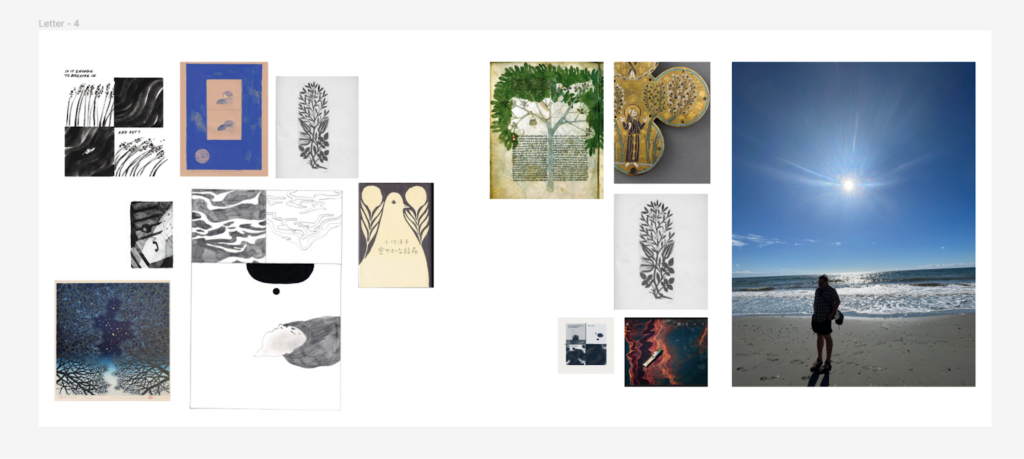
In the medium of poetry comics, I’m always learning from the work of Aidan Koch, Alyssa Berg, and Andrew White. This is the first medium-length comic I’ve drawn in a few years, and I was grateful for the work of Aidan Koch as a model of meditative pacing and movement.
Artist Molly Costello’s images of roots intermingled with stars have been stuck in my head since I first saw them, and definitely informed some of the images in this piece.
The idea of imagining yourself as a survivor came directly from Dr. Britt Wray, in her piece “It is time to step into the role of the ‘prospective survivor’.”
The presence of Water in this piece was informed by the ideas and work of my fellow artists-in-residence in the cohort, Giizhigad and Melody Joy Overstreet, who led us in a deeply moving studio workshop on Water.
The phrase “very good” comes from God’s declaration in Genesis 1:31 that all of creation, the whole material world, is very good (NRSV).
A few other ideological influences that were top of mind as I worked on this piece: David Bentley Hart’s essay “What Lies Beyond Capitalism: A Christian Exporation”; unpublished writings by moral theologian Chikara Jubilee Saito, adrienne maree brown’s Emergent Strategy (including her image of trees whose roots link together beneath the earth to survive storms); and my teammate Katharine Wilkinson’s writing on finding your place in climate work.
